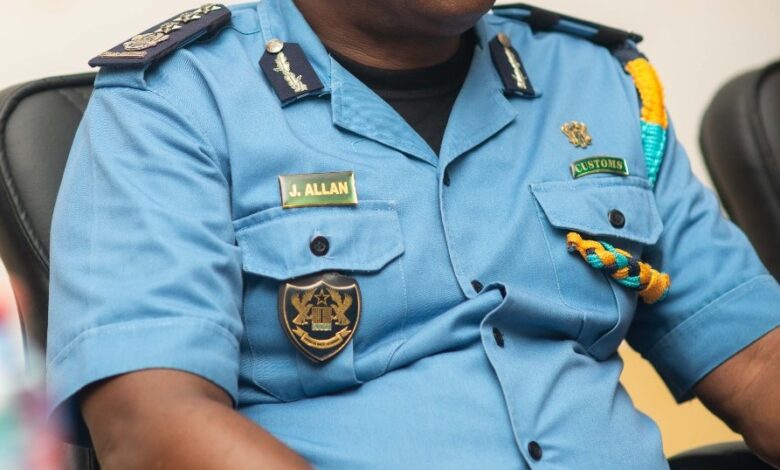Cover Up @ Customs: Impounded Trucks With Explosives, Ammunition Unaccounted For

Allegations of corruption and a high-level cover-up have surfaced within the Ghana Revenue Authority (GRA) Customs Division as two trucks loaded with explosives and ammunition allegedly belonging to Mallam Issah, remain unaccounted for.
The trucks, initially intercepted in Accra, were reportedly released under suspicious circumstances and rerouted to Kumasi, raising alarm over national security risks and systemic accountability failures.
The Mystery Surrounding the Disappearance
The two cargo trucks were intercepted by customs officials on suspicion of carrying explosives and ammunition without proper documentation.
However, instead of undergoing the expected verification process, the consignment was reportedly released under questionable conditions.
The Chronicle newspaper recently claimed the matter had been resolved as the it carried a story under the headline: “GRA Seizes Nigeria Made Explosives @ Aflao Border…Smugglers Assisting State Security Agencies In Their Investigations”, but insiders allege this report was a deliberate attempt to cover up the disappearance of the two cargo trucks containing the ammunitions and explosives.
A whistleblower, Alhaji Daria Abdallah, a Chief Revenue Officer, detailed these allegations in a report submitted to the Chief Justice and other key stakeholders, stating that the trucks came through Kpoglo border and was escorted by the Chief Revenue Officer, Kwame Appiah to Aflao.
According to the Whistleblower, there is no way Chief Revenue Officer could have just escorted the things to Aflao without proper examination or detention.
“It was officers who escorted the two trucks to Aflao, handed over to the Sector Commissioner. Now the Sector Commander is saying that the things were escorted to Accra but the consignee who is the importer learnt that things were intercepted and wanted a refund. He then called Kwame Appiah to bring his money which was GHC300,000 according to him, and Allan called his 2IC who is also a Revenue Officer to bring his, but Allan never mentioned how much he took.”
Implicated Officials
The scandal implicates Aflao Sector Commander Joseph Allan, retired Second-in-Command Parker, and Revenue Officer Kwame Appiah. According to whistleblower accounts, the trio allegedly accepted a GH¢300,000 bribe to release the consignment.
Sources indicate the bribe was disbursed in two stages: GH¢200,000 reportedly shared between Parker and Appiah, while Allan allegedly pocketed GH¢100,000.
The trucks, which were initially transported to Accra, and were later rerouted to Mallam Issah’s house in Kumasi in a move described as a blatant breach of protocol.
Adding another layer of controversy is the consignee’s identity—Mallam Issah, a former Sports Minister who was imprisoned during the Kufuor administration.
His alleged involvement raises further questions about how such a sensitive consignment passed through the system unnoticed.
Breakdowns in Protocol
Investigations have revealed glaring lapses in the handling of the consignment.
No documentation exists to show the trucks were detained, examined, or dispatched. It is unclear whether the Customs Commissioner, the division’s head, was informed of the release.
According to Abdallah, the importer demanded a refund of the bribe upon learning that the consignment was intercepted again in Accra.
Appiah reportedly returned the money, but Allan allegedly kept part of the sum, leading to renegotiations.
Grave National Security Implications
The missing explosives and ammunition present a serious threat to national security.
Experts warn that these materials could end up in the hands of criminals, fuelling armed robbery, terrorism, or illegal mining operations especially with the tension in the North.
“This case is not just about corruption; it’s a direct threat to national security and public safety,” said Daniel Akpalu, a security expert.
“Explosives are strictly regulated, and their disappearance calls into question the oversight and accountability within GRA Customs.”
Public Outcry and Demands for Action
The scandal has ignited outrage among citizens, civil society organizations, and security analysts.
Many are demanding an independent investigation to unravel the truth and hold those responsible accountable.
“This is a betrayal of public trust,” said a protester in Accra. “Our national security cannot be compromised for personal gain. Those involved must face the full force of the law.”
Next Steps and Lingering Questions
As the case unfolds, the Ministry of Interior and the National Security Council are expected to intervene. However, critical questions remain:
What exactly were the contents of the trucks, and where are they now?
How deep does the corruption within GRA Customs run?
Will those implicated face justice, or will this case, too, be swept under the rug?
In an interview with Daniel Akpalu, he said the investigators face the daunting task of determining how the explosive was smuggled into the country, and how Joesph Allan and his gang sought to manipulate the investigation.
“What we have seen in open, public part of the reports by one senior custom officer, who stated categorically that he bears witness to these explosives that was smuggled into the country and stated names of officers responsible in his reports to various investigation bodies in the country. This must be taken seriously,” he said.
He also stressed that the Sector Commander Joseph Allan and his men have hands in the smuggling of the explosive into the country.
“The Deputy Commissioner Preventive, Mr Peter Ofori lead investigation into this matter of explosive smuggled into the country, his version of the reports by one of his investigation team, I would humbly say that, it’s not a paper of high quality in terms of being really trustworthy,” he said.
For now, the missing trucks and their dangerous contents remain a stark reminder of the gaps in Ghana’s security and governance systems. As pressure mounts, the public demands answers and swift action to prevent similar breaches in the future.




